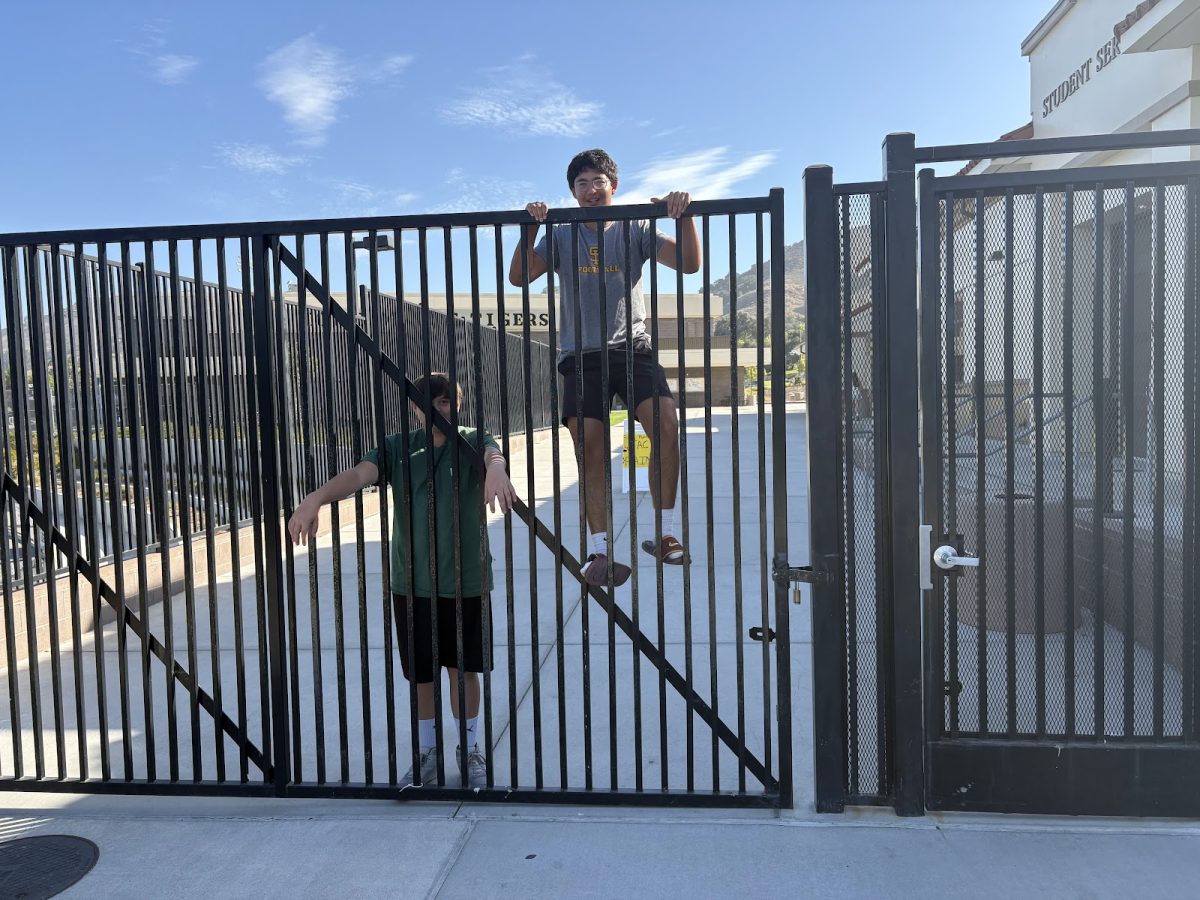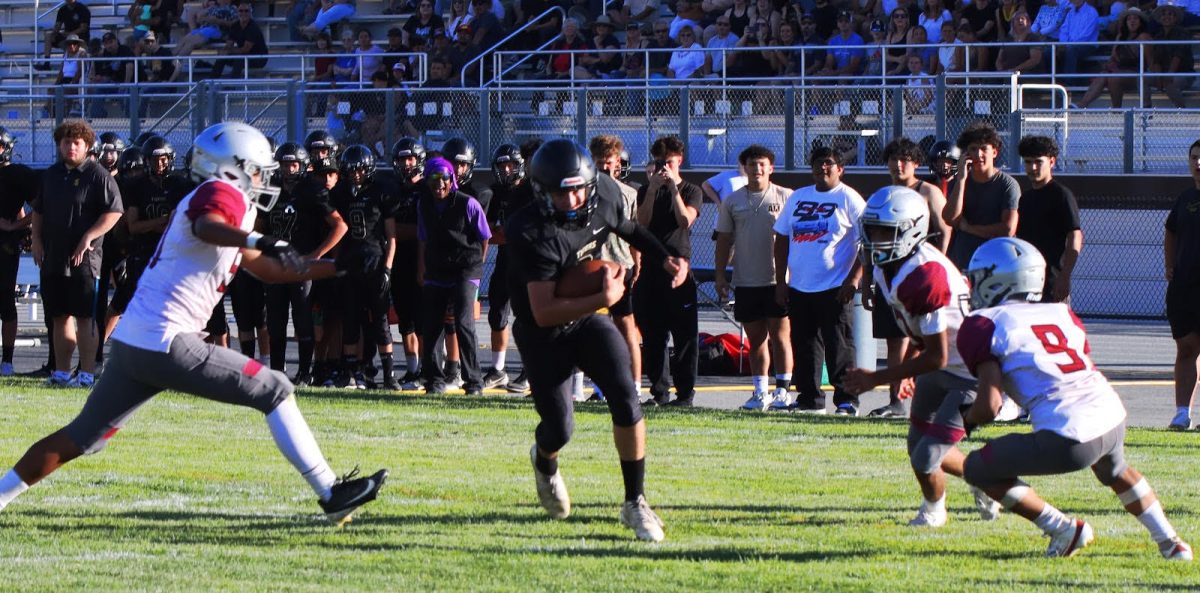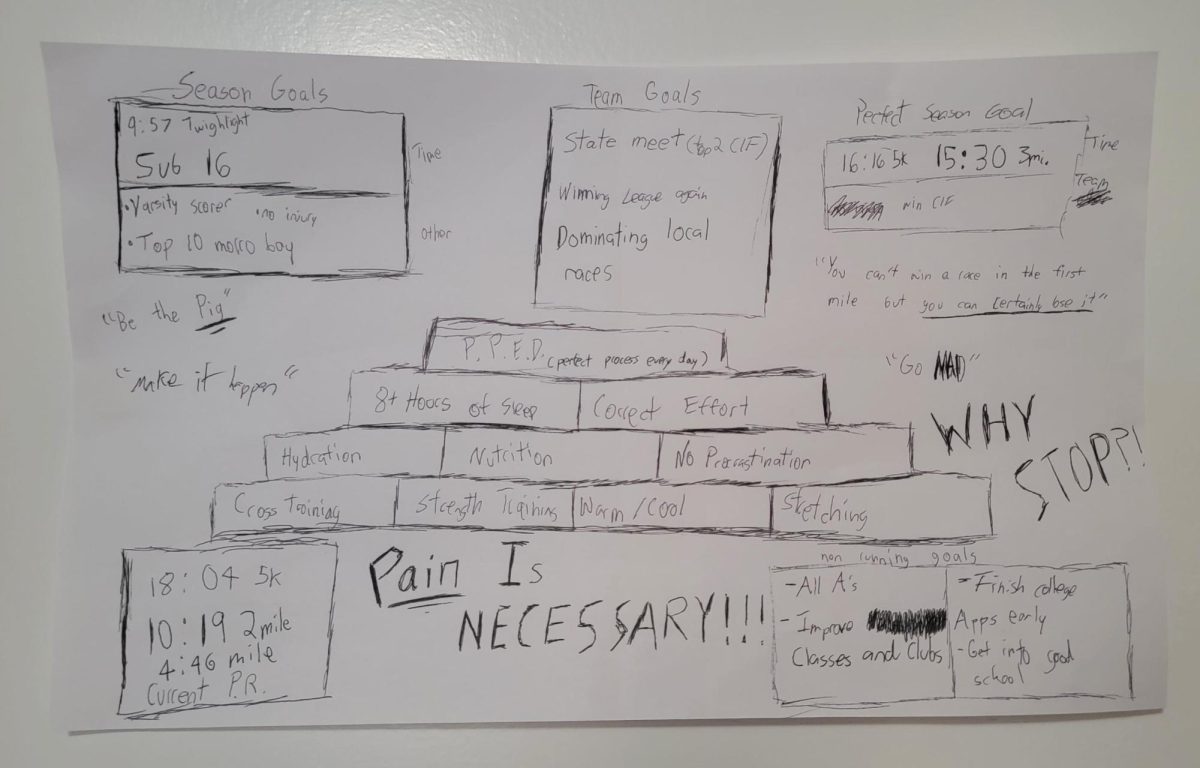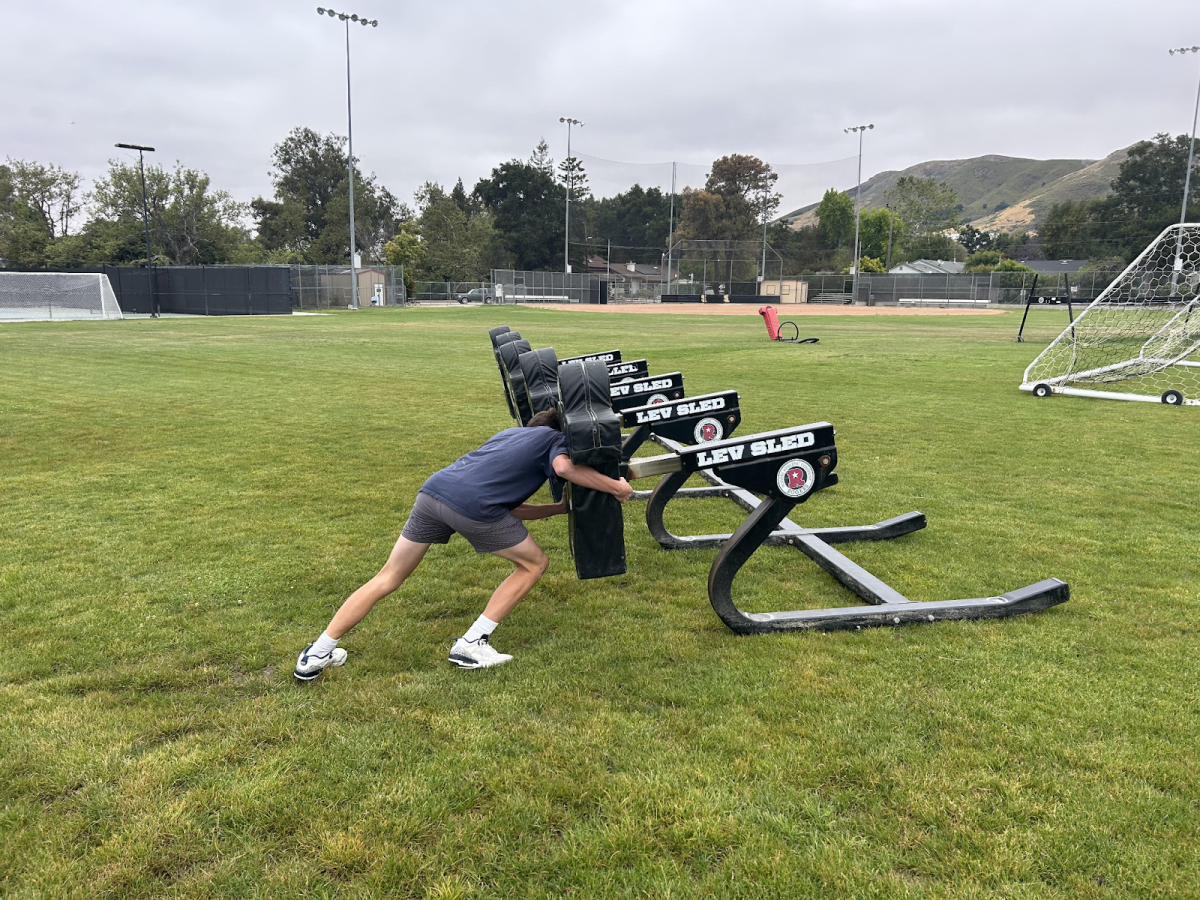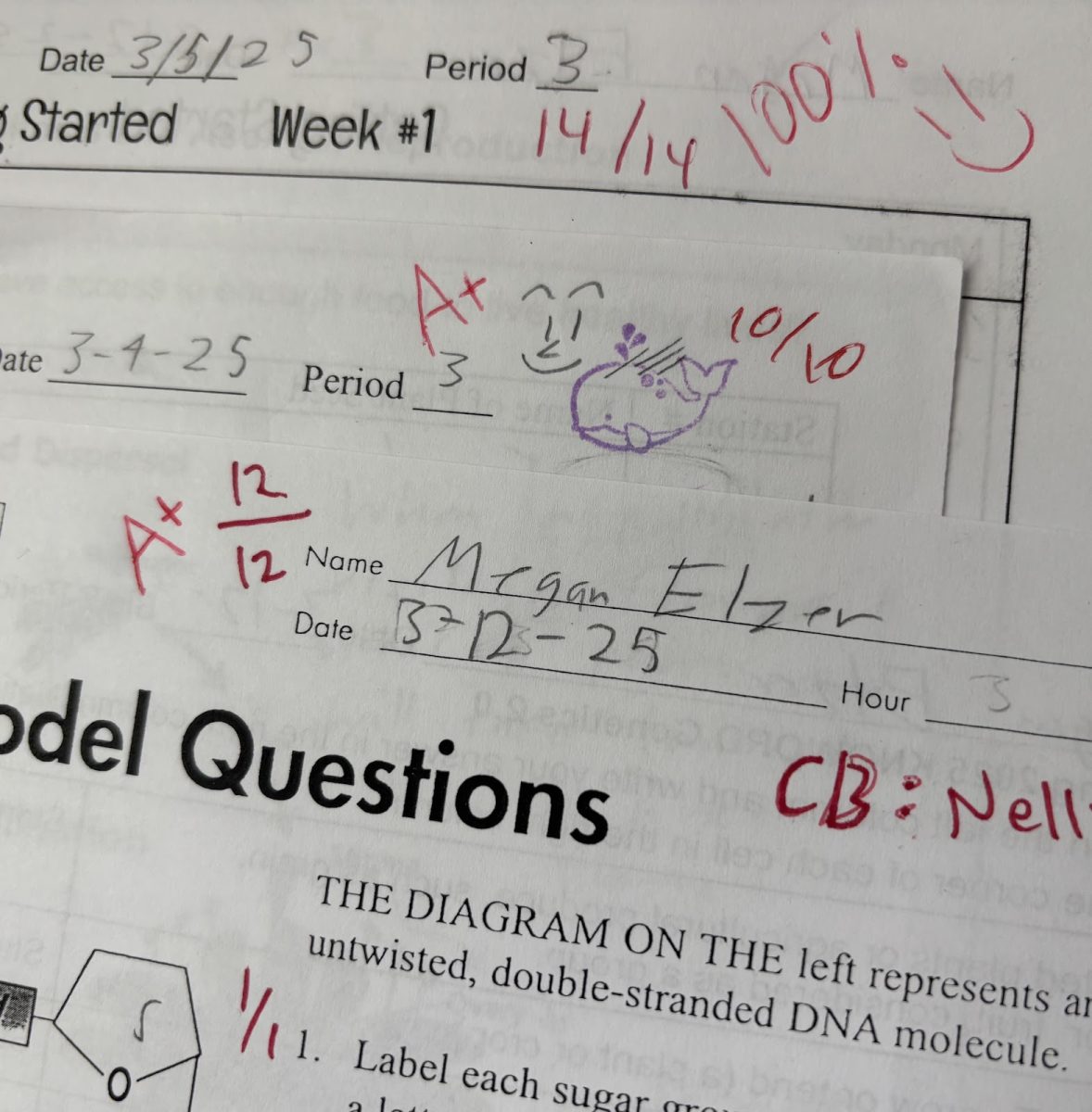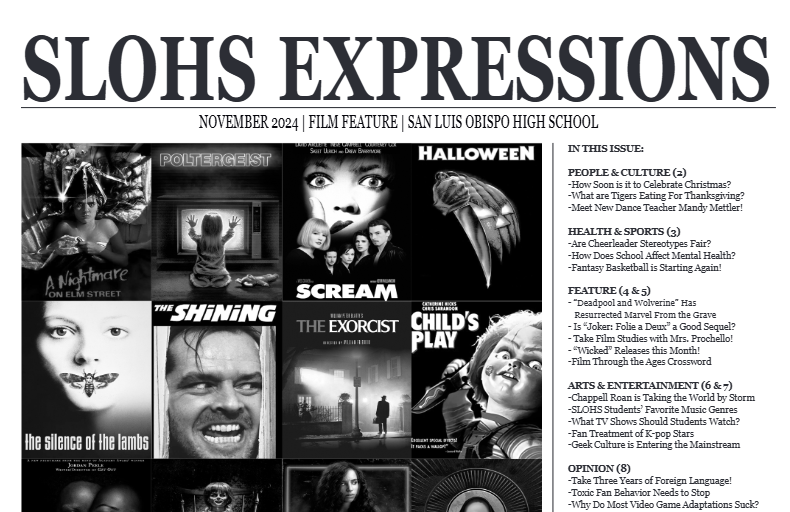It’s that time of year again. No, not referring to homecoming week, or even the only time San Luis Obispo gets below 75 degrees. It’s fantasy football season, which means chances are there’s at least one boy or girl in every one of our classes who’s streaming their rankings. Fantasy football, for those who don’t constantly hear about it, is a competition where participants select imaginary teams and rack up points depending on how their selected players perform in real games. With the pressure of trading for the player they’ve had their eyes on for many rounds, with money often on the line, this hobby of sorts is one many students at SLOHS are very passionate about.
Like most technology related distractions, one would expect fantasy football to take away time from students’ lives, but clearly this isn’t the case.
“I spend about four hours a week doing fantasy football, since I spend about three hours every Sunday watching football and my players. The other hour is devoted to podcasts that ranks the players depending on their skill,” said junior Lukas Mackin.
Some people have hopes and dreams of the perfect team, but there are always one or two players that each person is determined to draft.
“I’m really psyched about Tom Brady, he came back from his suspension a few weeks back and he’s scoring me a lot of points right now. I’m also excited to see what Odell Beckham Jr. does for my roster, he is always a threat to score,” said junior Andrew Medlock.
One of the best parts about competitions like these is that often times there is money involved for the winner if you play in a pool of other paying individuals.
“I should have won money last year because I got second in my league, but by the end of the season people always end up not paying the money because it’s with friends so it’s a loose money system,” said Mackin.
Although fantasy football may seem like something anyone can do, according to Medlock and Mackin, it’s a true talent.
“You can definitely be good at fantasy football, it just depends on how much you know about players and their strengths and weakness, and how they might play week to week. There’s strategy,” said Medlock.





